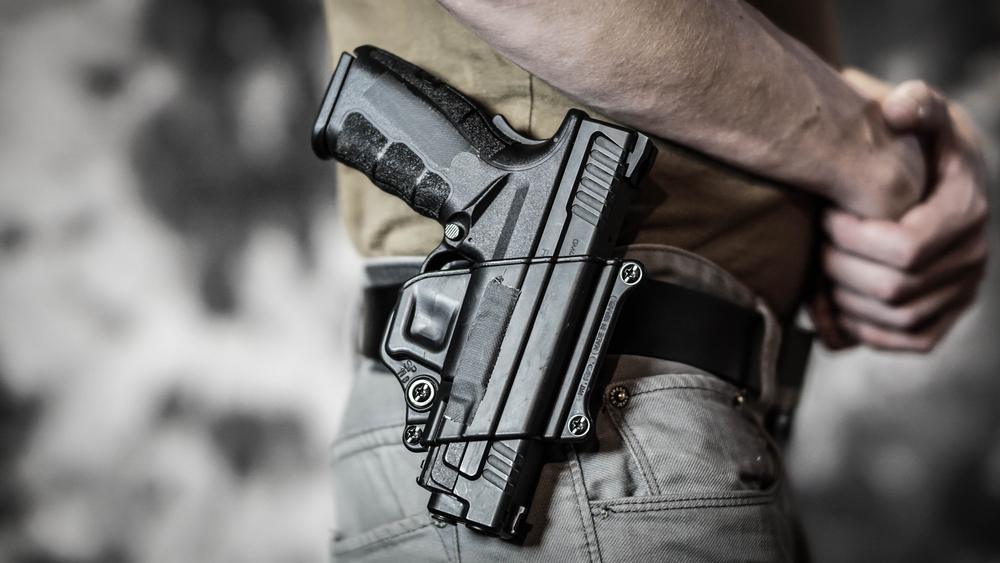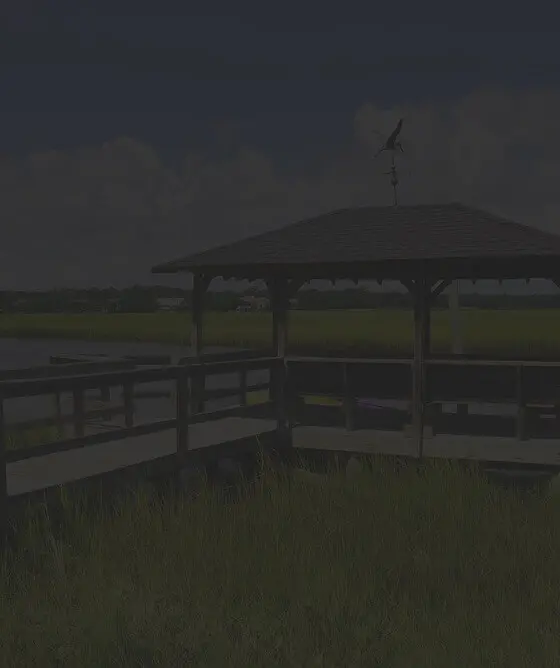
South Carolina has specific laws that govern the carrying and use of firearms, and it’s essential for residents and visitors to be aware of the legal landscape surrounding gun ownership and handgun offenses in the state. If you’re facing charges related to firearms or handguns, understanding the law and having experienced legal representation can make a significant difference in your case. In this blog, we’ll explore whether South Carolina is an open carry state, common handgun offenses, and the importance of seeking experienced legal counsel for firearm-related charges.
Is South Carolina an Open Carry State?
Yes. South Carolina passed a constitutional carry law in March 2024.
This new law allows law-abiding citizens to carry a concealed handgun without needing a permit, effectively making South Carolina a constitutional carry state. With this law in effect, individuals who are legally eligible to own a firearm can now carry it concealed without the need for a Concealed Weapon Permit (CWP).
The law applies to law-abiding adults who are 21 or older, provided they are not prohibited from possessing a firearm (e.g., due to a felony conviction or other legal restrictions). While this does not remove restrictions on carrying in places like schools or government buildings, it does provide citizens with the right to carry a concealed firearm without the prior permitting process.
Does This Mean Anyone Can Carry a Gun Anywhere in South Carolina?
No, even under South Carolina’s constitutional carry law, not everyone can carry a gun anywhere in the state. While the law permits individuals who meet eligibility requirements to carry a concealed firearm without a permit, there are still restrictions on where firearms can be carried. The law doesn’t give people unrestricted rights to carry guns in every location, and certain places remain off-limits.
Key Restrictions on Where You Can Carry a Firearm in South Carolina:
- Government Buildings: Firearms are generally prohibited in government buildings, such as courthouses and state offices.
- Schools: Guns are prohibited on school grounds, including K-12 schools, college campuses, and daycare centers, unless you have specific permission or are a law enforcement officer.
- Private Property: Private property owners have the right to prohibit firearms on their premises. For example, a business or venue can post signs or otherwise prevent individuals from carrying firearms on their property.
- Events and Gatherings: Guns may be prohibited at certain events or gatherings, such as sporting events, concerts, and other large public gatherings, especially if the event organizers or venue owners do not allow them.
- Federal Property: As with all states, firearms are prohibited on federal property, such as federal courthouses or post offices.
- Places of Worship: Places of worship may choose to prohibit firearms on their premises, even though the constitutional carry law does not specifically restrict carry in such locations.
Who Can Carry Under Constitutional Carry?
- Age: You must be at least 21 years old to carry a concealed weapon under the law.
- Eligibility: You must not be prohibited from possessing a firearm due to criminal convictions, mental health issues, or other legal disqualifications.
- Public Carry: The law allows for concealed carry in public spaces, but it doesn’t override other restrictions, such as those imposed by businesses, government entities, or private property owners.
Firearm Offenses in South Carolina
With constitutional carry now legal in South Carolina, it’s important to understand that while the law allows certain freedoms regarding the carrying of firearms, there are still numerous firearm offenses that individuals can be charged with if they violate state or federal laws. Below are some common firearm offenses in South Carolina that could lead to criminal charges:
1. Carrying a Firearm Without a Permit (if not qualified)
- When it applies: Even with constitutional carry, individuals must still meet eligibility requirements to carry a firearm legally. If someone is not eligible (e.g., a convicted felon or someone underage) and carries a firearm, they can be charged with this offense.
- Penalties: It can result in a misdemeanor or felony charge, depending on the circumstances and the individual’s legal eligibility to carry a firearm.
2. Carrying a Concealed Weapon (CCW) Without a Permit (for those who are required to have one)
- When it applies: Constitutional carry applies only to those who are eligible to carry a firearm without a permit. However, those who cannot legally carry a gun concealed, due to factors like prior felony convictions, must still obtain a Concealed Weapon Permit (CWP) to carry a concealed weapon lawfully.
- Penalties: Carrying a concealed weapon without the required permit can lead to criminal charges, including fines and imprisonment.
3. Possession of a Firearm by a Convicted Felon
- When it applies: Under both state and federal law, it is illegal for a convicted felon to possess a firearm, including handguns.
- Penalties: Violating this law is a felony offense that can carry substantial penalties, including imprisonment for several years.
4. Unlawful Discharge of a Firearm
- When it applies: Discharging a firearm in a manner that endangers others or in public spaces where it is prohibited is illegal. This includes shooting a firearm in a crowded area, residential neighborhoods, or near schools.
- Penalties: Charges could range from misdemeanor to felony offenses depending on the circumstances (e.g., if anyone is injured or if it’s done recklessly).
5. Brandishing a Firearm
- When it applies: Brandishing a firearm is the act of displaying a firearm in a threatening manner. While carrying a gun is legal under constitutional carry, using it to intimidate or threaten others is illegal.
- Penalties: This can lead to felony charges, especially if the individual is using the weapon in the commission of a crime (such as during an assault).
6. Possession of a Firearm While Under the Influence
- When it applies: If someone is carrying a firearm while intoxicated (under the influence of alcohol or drugs), they may be charged with this offense.
- Penalties: A violation could result in criminal charges, including the possible loss of the right to own a firearm.
7. Carrying a Firearm in a Prohibited Place
- When it applies: Even under constitutional carry, firearms are prohibited in certain places, including:
- Schools (K-12, daycare, and college campuses)
- Government buildings (e.g., courthouses, state offices)
- Private property where firearms are explicitly prohibited
- Businesses that post signs banning firearms
- Penalties: Carrying a firearm in one of these places can lead to misdemeanor or felony charges, depending on the location and circumstances.
8. Selling or Transferring Firearms Illegally
- When it applies: Selling or transferring firearms without proper registration or background checks is illegal. This also includes selling firearms to individuals who are prohibited from possessing them (e.g., convicted felons, individuals with restraining orders, etc.).
- Penalties: Illegal firearm sales are typically felonies, with serious penalties that can include imprisonment.
9. Improper Storage of Firearms
- When it applies: Failing to store firearms safely—especially in homes with children or other unauthorized individuals—can result in charges if someone is injured or the firearm is used unlawfully.
- Penalties: Depending on the situation, penalties could include fines, loss of firearm rights, or criminal charges if the firearm is misused.
10. Trafficking or Possession of Illegal Firearms
- When it applies: Possessing firearms that are banned or illegal under state or federal law, such as unregistered firearms, fully automatic weapons (if not licensed), or firearms with altered serial numbers, can result in serious charges.
- Penalties: This is a felony offense, and the penalties can include lengthy prison sentences and large fines.
11. Unlawful Use of a Firearm in the Commission of a Crime
- When it applies: If a firearm is used during the commission of a crime, such as robbery, assault, or even a traffic violation, the individual can face enhanced charges and more severe penalties.
- Penalties: This often results in felony charges and can carry much harsher sentences than the underlying crime itself.
Defense for Firearm Offenses in South Carolina
If you are facing a firearm-related charge in South Carolina, it’s critical to have experienced legal representation. A criminal defense lawyer can help you by:
- Challenging the legality of evidence (e.g., if the firearm was seized unlawfully or the arrest was improper).
- Assessing whether you were acting within your rights, such as in cases involving self-defense.
- Negotiating for reduced charges or sentencing, especially for first-time offenders or those facing nonviolent charges.
Given the complexity of South Carolina’s firearm laws—especially with recent changes such as constitutional carry—it’s essential to understand your rights and responsibilities and seek counsel if you are facing firearm charges.
How Can a Criminal Defense Lawyer Help with Firearm Offenses?
If you are facing charges related to a handgun or firearm offense in South Carolina, it is crucial to seek professional legal representation. A skilled criminal defense lawyer can:
- Evaluate the Evidence: A lawyer can review the evidence against you, determine if the charges are based on lawful grounds, and look for ways to challenge the case.
- Negotiate Plea Deals: If the evidence against you is strong, an attorney may be able to negotiate a plea deal to reduce penalties or potentially avoid jail time.
- Ensure Your Rights Are Protected: An experienced lawyer will ensure that your rights are not violated during the legal process and that you are treated fairly by law enforcement and the court system.
- Prepare for Trial: If your case goes to trial, a criminal defense lawyer can provide expert representation, defending your rights in front of a judge and jury.
Conclusion
While constitutional carry provides greater freedom for South Carolina gun owners, it’s crucial to recognize the remaining legal restrictions and offenses related to firearms. Violations of these laws can result in significant penalties, and understanding the law is essential to avoid legal consequences. If you’re facing firearm-related charges, consulting a criminal defense attorney can help protect your rights and ensure a strong defense.
At our law offices in Charleston, Georgetown, Myrtle Beach, and Pawleys Island, we are dedicated to providing knowledgeable and aggressive defense for individuals facing firearm-related charges. Contact us today for a consultation and ensure that your rights are fully protected.
Disclaimer: The content in this blog is for informational purposes only and should not be construed as legal advice. Please consult with an experienced criminal defense attorney for advice regarding your specific situation.















